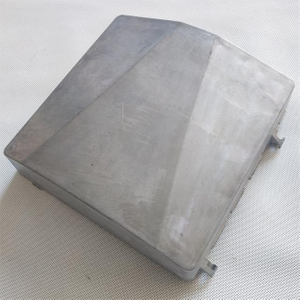Make Your Parts By Die Casting
This process involves pouring molten metal into steel molds. These components are then created using steel and are designed to be exact and consistent. Some of the commonly used die casting materials include aluminum, zinc, and magnesium.
Die Casting Advantages
Compared to other manufacturing processes, die casting offers significant cost savings. It allows you to create complex net shapes and features with minimal draft angles, which can greatly reduce secondary operations. It also allows you to combine multiple components into a single part, which can lower production costs. With the help of die casting, you can create complex net shapes and features that are ideal for various applications. It can also reduce production costs by combining multiple components into a single part. Other benefits include: Variable wall thicknesses, Tighter tolerances, Fewer steps from raw material to finished part. Fast production cycle times, Reduction in material scrap, Long tool life, especially for zinc and magnesium etc.
Die Casting Alloys
Most die casting materials are non-ferrous, and their properties vary depending on their applications. These include aluminum, magnesium, and zinc. They can also endure high operating temperatures. Die casting zinc, die casting aluminum, die casting magnesium have: Good corrosion resistance, High strength and hardness, High thermal conductivity, High electrical conductivity, Outstanding EMI/RFI shielding properties, Good finishing characteristics etc. Aside from these, die casting also offers various benefits. For instance, different die cast alloy materials can provide different properties and functions.
Die Cast Process
Due to the varying properties of various die casting materials, different die casting parts can be used for different applications. At TEAM MFG, we offer a variety of die casting options to ensure that the right process is used for the right part.
Hot-Chamber
Hot-chamber die casting is commonly used for producing low-melting, non-ferrous materials such as zinc and magnesium.
Cold-Chamber
Cold-chamber die casting is also commonly used for producing high-melting metals such as aluminum. It involves pouring molten metal into a cold chamber and using a hydraulically operated plunger to push it into the die.
Injected Metal Assembly
Over the years, we have refined and improved our one-step manufacturing process known as Injected Metal Assembly. This method is ideal for producing small component assemblies and improving the quality of finished products.
Multi-Slide & Conventional Die Casting
At TEAM MFG, we offer a variety of tooling options, such as multi-slide and conventional. Each of these has its own unique characteristics and can be used for different applications. Conventional die cast tooling is commonly used for producing one or multiple cavities. It's designed to be efficient and cuts down on secondary operations.
● Dies that are designed to efficiently manage high volume production
● Net shape die casting, with design focused to avoid secondary operations
● Steel braced dies to aid in the longevity of the tool
● Efficient production with properly planned cooling and water lines
Global Die Castings Services
As a global manufacturer of precision components, we offer a variety of tooling options and design solutions for various industries, such as consumer electronics, healthcare, and automobiles. Our engineers can also help design a component that will be used in mass production.Contact us today to learn more now!

























